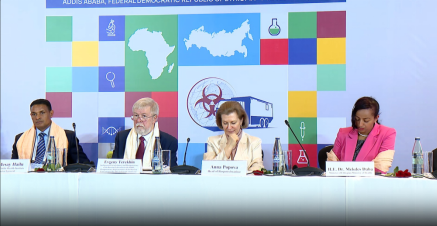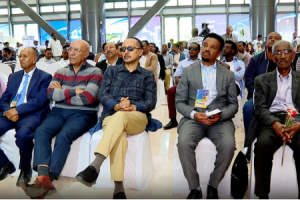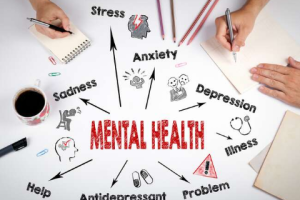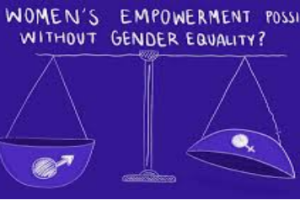
Africa is in critical need to strengthen its healthcare systems and improve its ability to prevent and respond to disease outbreaks. Particularly, in the face of recurring epidemics such as Ebola, cholera, and the lasting effects of COVID-19, the continent continues to grapple with major public health challenges.
Even worse, the challenges are exacerbated by limited infrastructure, a shortage of trained healthcare personnel, and inadequate early warning and detection systems. Thus, to address and reduce the burden of these challenges, it is more important than ever to invest in robust disease surveillance, develop effective emergency response mechanisms, and strengthen regional cooperation to build long-term resilience for African nations.
This was also reflected by the Ethiopian Health Minister Mekdes Daba (MD) at the First Russian-African Sanitation and Emergency Rapid Response Team training seminar that was held in Addis Ababa for three consecutive days, from April 23-25, 2025.
Speaking at the opening of the seminar organized by the Russian Federal State Agency for Health and Consumer Rights (Rospotrebnadzor) together with the Ethiopian Health Ministry, Minister Mekdes said that African nations should build their disease prevention and control capabilities by investing in modern laboratory infrastructure and skilled health personnel to respond to public health emergencies.
Underscoring the importance of a strong health system to protect the public’s safety; the Minister said that exercise platform is of great importance for bringing together experts from Russia and African countries to exchange experiences on how to respond quickly to health emergencies. She said that the participation of more than 100 experts from 15 African countries in the program is a sign of the countries’ commitment to the issue. The cooperation will help strengthen relations between African countries she said stressing that the Ethiopian government is committed to building its capacity to respond to health emergencies.
During the forum, a message from the President of the Russian Federation, Vladimir Putin, was presented by the Head of the Russian Federal Service for Consumer Rights Protection and Human Rights Protection, Prof. Anna Popova, outlining Russia’s experience in managing public health emergencies.
“The Russian Federation attaches great significance to the development of international cooperation to counter the threat of dangerous infectious diseases. African states are our important partners in this sphere. Following the Second Russia-Africa Summit, we are implementing a large-scale program to assist our African friends in combating epidemics, including those with pandemic potential. Over the past two years, more than 150 African specialists have been trained in accordance with this program. We are conducting joint research projects to study dozens of dangerous infections, and six mobile laboratories have been delivered to African countries”, the message read.
This event presents a valuable opportunity for exchanging professional experience, mastering the joint operation of special-purpose equipment and improving rapid response methods for coping with outbreaks of dangerous infectious diseases, it added.
Concurrently, Popova affirmed Russia’s ongoing commitment to deepening its collaboration with African countries.
The Vice President of the African Union Commission, Selma Malik, also said that the training program will enable Africa to strengthen its response to epidemics as a continent. She also expressed the African Union’s commitment to strengthening the disease prevention systems of its member states.
The Russian Ambassador to Ethiopia and Representative of the African Union Commission, Evgeny Terekhin also said that Russia and African nations have long-standing historical partnerships. Pandemics do not know borders; thus, it is critical to work together and strengthen international collaboration in diseases prevention.
As part of the joint initiative to modernize Ethiopia’s health infrastructure, a cutting-edge mobile laboratory designed to detect over than 300 diseases was handed over to the Ethiopian Ministry of Health.
Upon receiving the mobile laboratory from Anna Y. Popova, Health Minister, Mekdes (MD), reaffirmed the strong commitment of both countries to strengthening their collaboration across multiple health-related areas.
The Minister stated that the mobile laboratory will be instrumental in providing vital health services both within Ethiopia and in neighboring countries. “This facility will not only serve Ethiopia but also neighboring countries, enhancing regional health cooperation and epidemic readiness,” she emphasized.
She also emphasized the crucial role of Ethiopia’s existing health research institutions, such as the Ethiopian Public Health Institute and the Armauer Hansen Research Institute, stressing the importance of strengthening and expanding these facilities to bolster disease prevention efforts
Africa is home to vital health research institutions, including the Africa CDC, she stated, emphasizing, “We must build on these foundations, enhancing laboratory manpower, and leverage strong partnerships, like the one we have with Russia, to protect our people.”
Ethiopia currently operates 33 laboratories and aims to increase this number to 40, thereby strengthening the country’s capacity for national and regional disease surveillance and response, the Minister further noted.
“Russian support is distinct from traditional aid; it transcends mere assistance and focuses on fostering lasting independence and resilience,” she underscored.
Head of Russia’s Federal Service for the Protection of Consumer Rights and Human Wellbeing, Anna Y. Popova also commended the shared resilience and unity of the Ethiopian and Russian people.
Just as Ethiopians stood strong for its unity and against past invasions, today’s fight is against disease. This partnership ensures Africans can protect themselves sustainably, she stated.
Emphasizing that her country’s approach centers on long-term collaboration and capacity-building, rather than fostering dependency Popova said: “Our goal is to help African nations stand on their own in the face of future health threats.”
In the meantime, Ethiopia and Russia have entered into a comprehensive agreement aimed at significantly enhancing Ethiopia’s ability to respond to health emergencies and crises. The partnership was underscored during a joint rapid response exercise held in Addis Ababa, according to a report by EBC.
The agreement, signed by Ethiopian Health Minister Mekdes Daba (MD) and Head of Russia’s Rospotrebnadzor (Russia’s public health agency of the Russian Federation), Y. Popova, included the provision of a state-of-the-art mobile laboratory and specialized training for Ethiopian healthcare professionals. Minister Mekdes emphasized the mobile lab’s potential to revolutionize rapid testing and response, particularly in remote areas, improving prevention and saving lives. The training aims to build long-term capacity and foster self-sufficiency in managing health crises.
The signatory countries have highlighted the importance of international cooperation against global health threats and noted the partnership builds on historical ties and supports Ethiopia’s broader international engagement, including BRICS aspirations.
The three-day seminar brought together experts from 15 African nations, including Ethiopia, as well as international organizations to enhance rapid response and research-based service capabilities.
BY STAFF REPORTER
THE ETHIOPIAN HERALD SUNDAY EDITION 27 APRIL 2025





